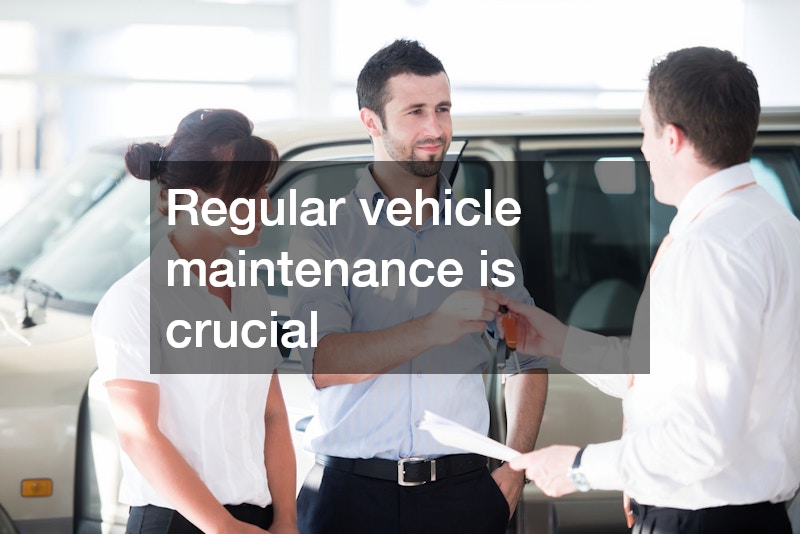

Since the invention of the automobile, human life has sped up and branched out. Cars have enabled long-distance travel, an explosion of available consumer goods, and people are no longer tied to the geographical location they were born in. A trip that would have taken two weeks by car can now be completed in only a few hours. There is no doubt that cars have made life easier and more exciting, but was the invention of cars all good? Many car owners overlook the negative aspects of owning a car like paying for car insurance and fixing car problems. While cars have made traveling quicker and more efficient, they can also hinder your travel time in bigger cities where it would actually be faster to walk due to the heavy traffic. Not to mention the frustration and stress of trying to drive through a city like Nashville or Tampa during rush hour. If you’re considering buying a car, make sure you know about the many car problems ownership can come with. These can include:
Maintenance Costs
Keeping your vehicle up to date is paramount if you want it to run smoothly. It is also important because letting one issue go will inevitably cause more car problems, and increase the amount of money you will need to spend to get your car working properly again. The most common maintenance issues you will encounter are:
Oil Change And Oil Analysis
The oil in your car is one of the most important components if you want your vehicle to run at all. Without oil, you would not be able to drive, and your car would quickly become permanently damaged. Oil helps lubricate the moving parts in your engine and prevent unnecessary friction from occurring. Between the friction and combustion that will naturally happen in your engine, it will produce a lot of heat. Oil also helps cool down your engine so it can stay running smoothly. That it why it so important that you change the oil in your car about every three months, and conduct an oil analysis about once a year. An oil analysis can help determine the health of your engine, and save you money by preventing additional car problems from occurring.
Weather Damage

Unlike most of the other things you own, your car does not live inside with you. It spends every day taking a beating from the weather and climate that you live in. This can have huge consequences over time. For example, car owners who live in colder climates are bound to experience snowfall throughout the year. As the snow and salt from the roads get onto your vehicle, they can cause a chemical reaction known as corrosion. This will ultimately damage any exposed metal on your car, such as your engine block and breaks. It can also remove the paint on your car, and in extreme cases, the cold temperature can cause your fuel line to freeze up due to the excess moisture in the air. If you live in Nebraska, Wyoming, or Colorado, the region of the United States known as “Hail Ally”, you are likely to experience hail damage. This can cause engine damage, put holes in your car, and even shatter your car windows. The worst part of experience weather damage is that you generally have no control over the car problems it is bound to cause.
Professional Cleaning Costs
It can be extremely time-consuming keeping your car and its interior properly cleaned, especially depending on your lifestyle and the area you live in. For example, parents with younger children can expect to have to clean their car at least twice a week if they want to keep their interior clean. And living in a tropical or more southern region will cause sand and smashed bugs to be more abundant in and on your vehicle. Even if you do clean your car every few weeks, a professional cleaning service will be able to give your vehicle a deep cleaning. From power washing seats and your exterior, to cleaning your air vents and dashboard, your cleaning crew is sure to make your car looks as clean as when you first bought it.
Abiding By State Rules
The thought of how other state driving laws can vary may not exactly be the first thing that crosses your mind when looking to buy a car, particularly if you don’t travel often. But, it is something that you need to be aware of. States have a lot of power when it comes to deciding traffic laws, so with the exception of basic signage like red lights, stop signs, and signs on the high way, everything else could be different. And unfortunately, the excuse of “I didn’t know” usually is not enough to get you out of a ticket or fine. So while you may not be thinking of how other state’s driving laws can give you car problems, it is important to be aware of them. These can include:
Speed Limits

The most immediate difference you will notice driving between states is the speed limit change. For example, in Ohio, the default speed limit for a rural interstate is 70 miles per hour. But, if you were to cross into the neighboring state of Kentucky, the default speed limit drops to only 65 miles per hour. Although this may seem like just a minor change in speed limit, you will get a ticket if you cross into Kentucky and do not abide by their speed limit. The most common driving violation has always been driving above the speed limit. In fact, the first speeding ticket was issued in 1902, when cars could barely reach a speed of 45 miles per hour.
Driving While Intoxicated
Driving while intoxicated (DWI) is a serious offense regardless of what state you are in. Contrary to popular belief, the federal government does not mandate DWI laws unless you are on federal grounds like the White House. This means that the amount of alcohol or drugs that you can drive within your system varies from state to state. For example, if you were in Nevada the legal limit for your blood alcohol content (BAC) is .08%. But in the neighboring state of Utah, the blood alcohol content limit is .05%. You can also encounter varying laws about the penalty for refusing to take a breathalyzer test. In states like Wisconsin, refusing a breathalyzer is assumed to be an admission of guilt. All 50 states also have an implied consent law. This means that drivers give up the right to refuse a blood test to test BAC when they choose to drive. So if a police person has a reasonable suspicion that you over the limit, they can legally require you to submit to a blood BAC test. And that’s not all that varies between states. In states like Arizona and Georgia, DWI cases are charged more seriously than in states like Ohio and North Dakota. So depending on where you are geographically, you could experience more than just car problems if you choose to drive while intoxicated.
Insurance And Accident Laws
Getting into an accident is one of the car problems everyone hopes to avoid, but it is important to know what you will do if you are involved in an accident. The first thing you should know is who you will call if you decide to seek legal services for the accident. You should consult with a car accident attorney as they specialize in local traffic laws and will be best equipped in advocating for you during court. The type of accident may also motivate you to find a more specialized attorney. For example, motorists involved in semi-truck accidents will want to seek out semi truck accident legal services. Similarly, drivers involved in a drunk driving accident will want to seek an attorney who specializes in DWI cases. Having a specialized lawyer on your side is also important because some states are no-fault states. This means that in places like Kansas and Arkansas, you cannot file court claims for damages to your car, or for personal pain and suffering. This can affect how you will be compensated after a crash, and could leave you in debt if you have to pay for everything put of pocket.
Cell Phone Regulations

Depending on what state you are in, it may be unlawful to hold a cell phone for any reason while driving. This means that in states like Georgia for example, you can get a ticket for talking on the phone while driving if you are not using a Bluetooth device. Many states are beginning to implement similar hands-free laws to discourage driving while distracted. It is estimated that motorists who text while driving are about six times more likely to be involved in an accident than drivers who remain hands-free. This is also why the severity of being charged for not obeying the hands-free law vary between states. For example, you could be charged up to $50,000 and spend an entire year in prison if convicted in Alaska.
Buying A New Car

Buying a new car may not be high up on your list of potential car problems you might encounter, but for many people, this process can be extremely stressful. And what’s worse is the fact that this stress can carry over throughout the entire life of the car even months after you have completed the purchase. Many of these stresses come from common car buying mistakes, which can include:
Not Carefully Considering Your Financing Options
One of the biggest mistakes people will make when buying a car is letting the salesperson control the conversation. It can be easy to get distracted with monthly payment pricing and add ons, but it is important to consider the overall price of the agreement including interest and the actual value of the vehicle. If you don’t choose to negotiate the components of your agreement one at a time, you be may overpay for your car and ultimately end up in debt.
Ignoring Individuals With Cars For Sale
Another big mistake car buyers will make when looking for a car is not carefully considering all of their buying options. For example, it would make sense to buy from a Chevrolet dealership if you were looking to buy a brand new Chevy Equinox. But, Chevy dealers may not be your first buying option if you are looking to buy a used car. By seeking out individuals with cars for sale as opposed to going to a dealership, you may be able to negotiate better pricing. If the person you are buying from is a close friend, or if you have a personal connection with them, you may also be able to trust their advice about the car more.
Not Getting The Car Inspected Before Purchasing
Buying a used car can be tricky for many reasons. The main reason is because you never know what the car has been through, or if the seller is omitting damages to the vehicle. This is why it is important to have the car inspected before a purchase is made, and to take the vehicle for a test drive. Test driving is also paramount when purchasing a new vehicle from a dealership because you may find that you don’t like how the car feels, or you may feel uncomfortable driving it. Having a trusted mechanic check the engine, breaks, and air bags can save you from paying for car problems after you buy the vehicle.
Final Thoughts
Although cars have widened our horizons of possibility, this did not come without its drawbacks. As any well-seasoned car owner can tell you, experiencing car problems is inevitable. And while some of these problems are avoidable, like getting a used car inspected before you buy it or looking up local driving laws when traveling, other car problems such as weather damage and needing an oil change are inevitable. Regardless of if you have owned your car for a few years, or you are just simply searching for the perfect used trailer for sale, make sure you know these common car problems so you can avoid the hefty consequences that can follow them.



